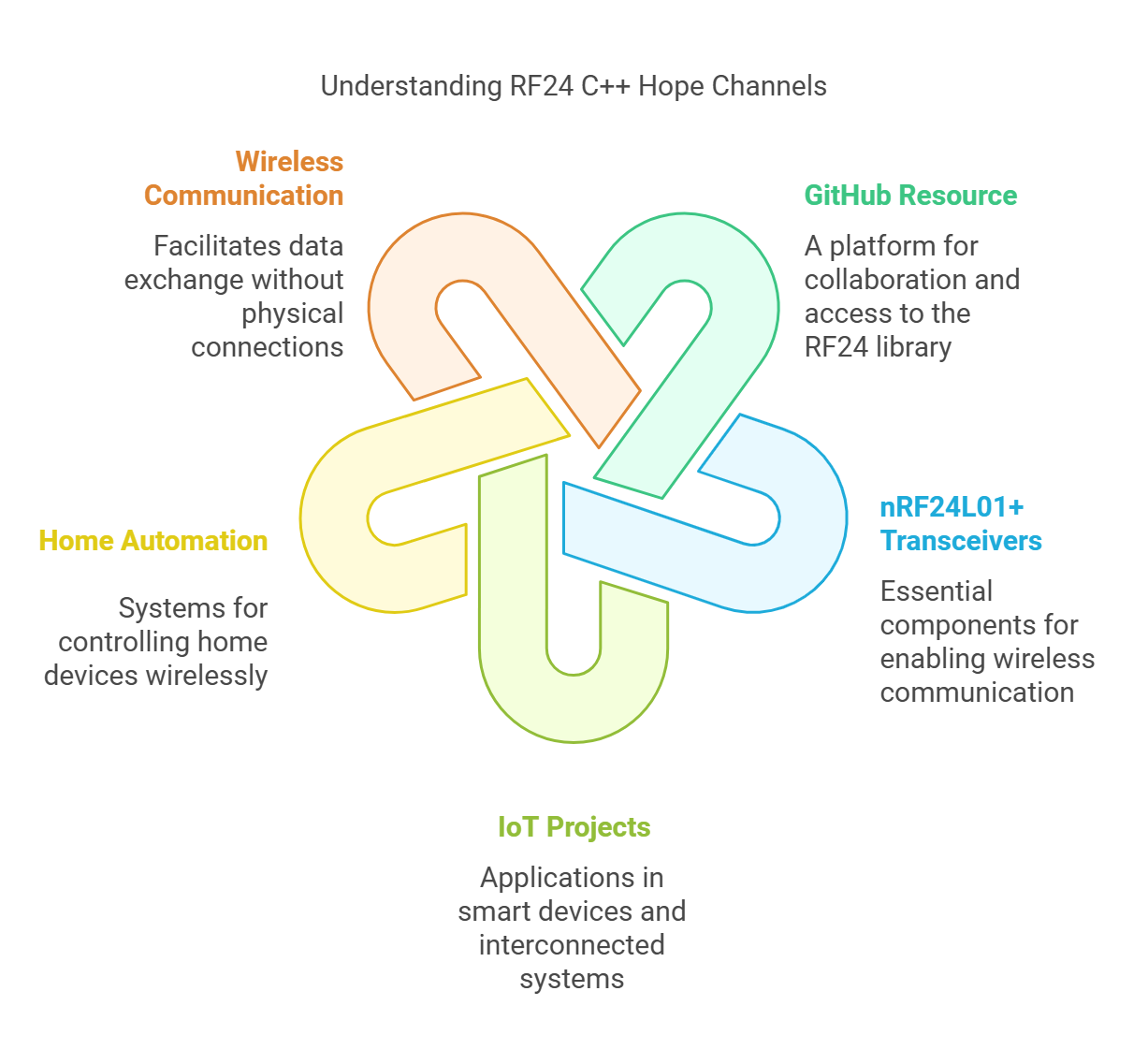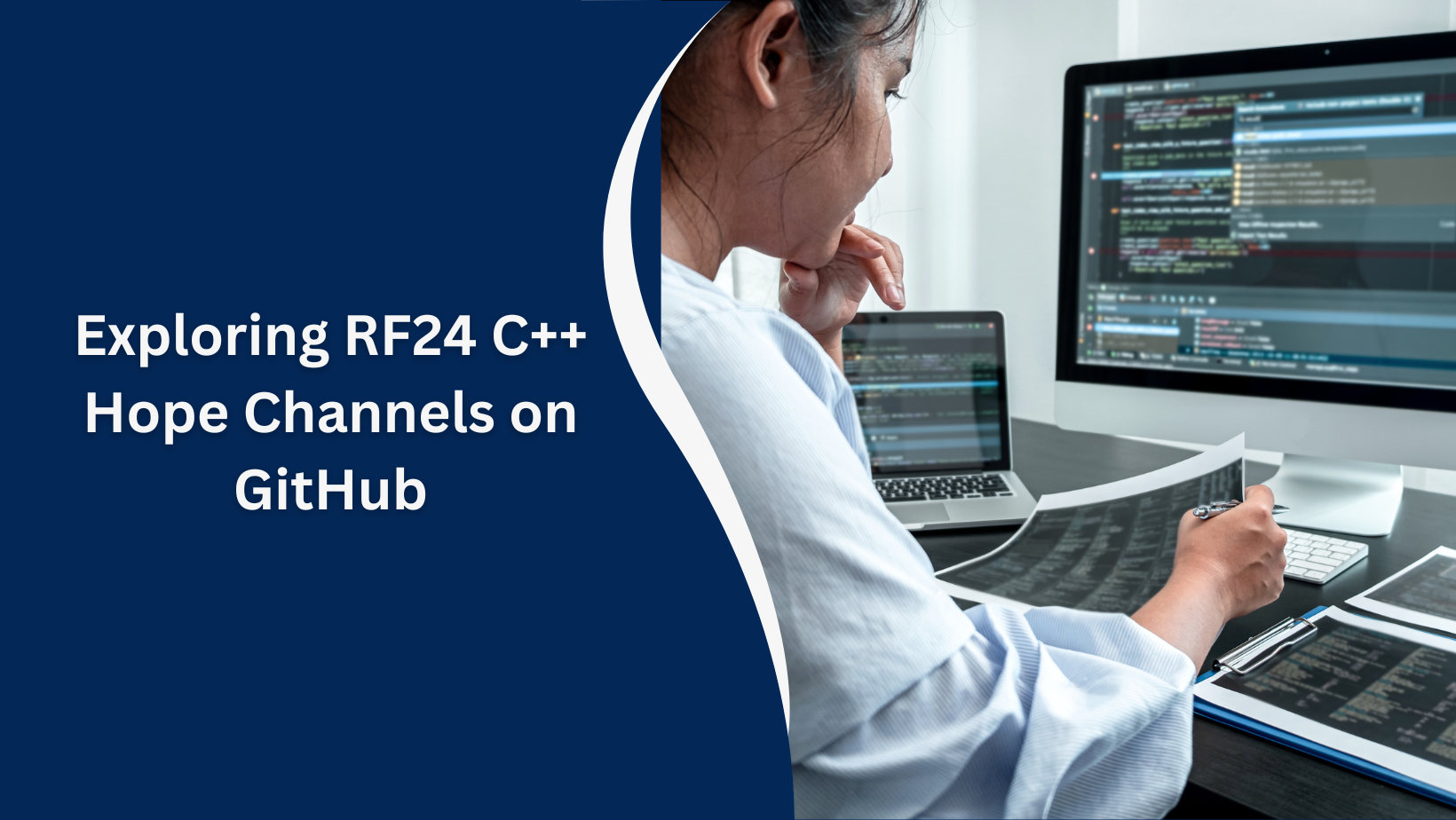Discover the power of RF24 C++ hope channels and their impact on wireless communication. Learn about key features, applications, and the role of GitHub in supporting developers.
Exploring RF24 C++ Hope Channels on GitHub
The RF24 C++ library has become an essential tool for developers working with nRF24L01+ transceivers. This open-source library enables seamless communication between microcontrollers, making it ideal for IoT (Internet of Things) projects, home automation systems, and wireless communication setups. One particularly intriguing feature of the RF24 library is its support for Hope RF channels, which ensure robust and interference-free communication. This article dives deep into RF24 C++ hope channels, their significance, and why GitHub is the go-to resource for developers exploring this technology.
What are RF24 Hope Channels?
Hope channels in RF24 refer to communication channels that help minimize interference and ensure reliable data transmission. The nRF24L01+ module operates within the 2.4 GHz frequency band, which is shared by Wi-Fi, Bluetooth, and other wireless technologies. This shared usage can result in congestion and interference, reducing communication efficiency. Hope channels mitigate this by allowing devices to dynamically switch frequencies, maintaining a stable connection even in challenging environments.
By leveraging hope channels, developers can achieve greater reliability in wireless communication. These channels are particularly useful in scenarios where multiple nRF24L01+ devices operate simultaneously, as they prevent overlapping and interference.
Key Features of the RF24 Library
- Dynamic Channel Allocation: The RF24 library’s support for hope channels ensures that devices can dynamically select the most optimal frequency channel for communication, enhancing reliability.
- Ease of Use: With intuitive functions and comprehensive documentation, the RF24 C++ library is user-friendly, even for beginners.
- Power Efficiency: The library optimizes the power consumption of nRF24L01+ modules, making it suitable for battery-powered IoT devices.
- High Data Rates: RF24 enables data transfer rates of up to 2 Mbps, ensuring fast and efficient communication.
- Robust GitHub Community: The GitHub repository for RF24 serves as a hub for developers to share updates, report issues, and contribute enhancements to the library.

No Operating System Found: What It Means and How to Fix It
Exploring the RF24 GitHub Repository
GitHub is the primary platform where developers can access, contribute to, and explore the RF24 C++ library. Here are some highlights:
- Comprehensive Documentation: The RF24 GitHub repository includes detailed guides and examples that simplify the learning curve for new users.
- Active Community: The repository boasts a vibrant community of developers who provide support, share use cases, and collaboratively improve the library.
- Regular Updates: Frequent updates ensure that the library remains compatible with modern development standards and hardware advancements.
- Issue Tracking: Developers can report bugs or suggest improvements via GitHub’s issue tracking system, fostering a collaborative development environment.
- Open Source Advantage: Being open source, RF24’s source code is transparent and customizable, allowing developers to tailor it to their specific needs.
Applications of RF24 with Hope Channels
- Home Automation: RF24’s hope channels make it ideal for controlling smart home devices, ensuring interference-free communication between components.
- Industrial Automation: In factories, where multiple wireless systems operate, hope channels provide reliable data transfer in complex environments.
- IoT Devices: IoT systems rely on consistent and energy-efficient communication, which RF24 delivers through its robust channel management.
- Remote Monitoring: Whether it’s environmental monitoring or remote sensor networks, hope channels ensure uninterrupted communication over long distances.
Why Choose RF24 for Your Projects?
The RF24 C++ library stands out due to its versatility, community support, and ease of use. Its integration with hope channels ensures that developers can overcome challenges related to interference and achieve reliable communication. Additionally, GitHub serves as a one-stop resource for exploring the library’s capabilities, accessing updates, and engaging with other developers.
Conclusion
RF24 hope channels represent a game-changing feature for developers working with wireless communication. By utilizing the RF24 C++ library and leveraging GitHub’s vast resources, developers can create efficient, reliable, and interference-free systems. Whether you’re building IoT devices, automating your home, or developing industrial applications, RF24’s capabilities make it a valuable addition to your toolkit.
FAQs about RF24 C++ Hope Channels on GitHub
Q1: What is the RF24 C++ library? A: The RF24 C++ library is an open-source software framework that enables seamless communication between devices using nRF24L01+ transceivers.
Q2: What are hope channels in RF24? A: Hope channels refer to dynamically allocated frequency channels that minimize interference and ensure reliable wireless communication.
Q3: Why is GitHub important for RF24 developers? A: GitHub provides access to the RF24 library’s source code, documentation, updates, and a collaborative community for troubleshooting and improvements.
Q4: How does RF24 optimize power consumption? A: The library includes features that reduce the power usage of nRF24L01+ modules, making them suitable for battery-powered applications.
Q5: What are some applications of RF24 with hope channels? A: Applications include home automation, industrial automation, IoT systems, and remote monitoring setups.

